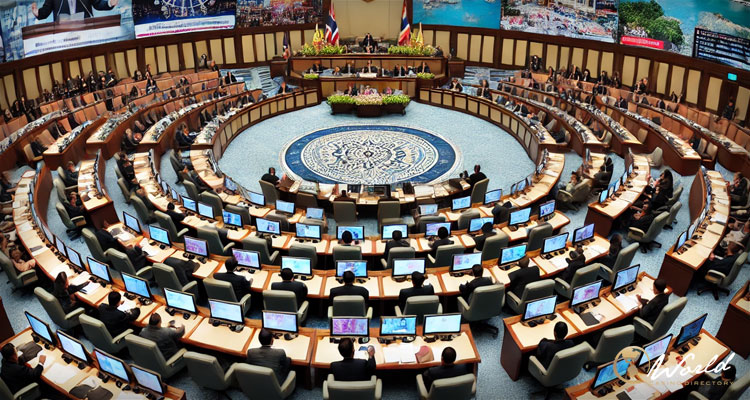Thailand’s casino bill, which aims to establish entertainment complexes featuring casinos, may see significant revisions following the results of recent public hearings. The Fiscal Policy Office (FPO) has compiled 45 key recommendations, which are expected to be submitted to the Cabinet for further consideration. This move marks a major step in the country’s efforts to develop integrated resorts, attract foreign tourists, and boost national revenue.
One of the main recommendations to emerge from the public hearings is a proposed change to the bill’s title. It has been suggested that the legislation, initially titled the “Entertainment Complex with Casino,” should be renamed the “Integrated Resort Act.” This change is aimed at better capturing the multifaceted nature of the entertainment hubs, which will offer far more than just casinos.
The hearings also called for expanding the types of entertainment activities that could be hosted within these complexes. Currently, the draft allows for four types of entertainment; however, participants advocated increasing that number to seven. Among the new proposed activities are dedicated areas for promoting Thai culture, which would add a unique and authentic element to the resorts, enhancing their appeal to international tourists.
Shareholder Composition and Licensing Discussions
Another key topic during the hearings was the structure of ownership within these entertainment complexes, according to The Nation. Participants suggested that the percentage of Thai shareholders should range between 30 percent and 51 percent, ensuring local stakeholders have a significant presence in these ventures.
The hearings also addressed the issue of licensing for the complexes. Opinions were divided, with some advocating for reducing the validity of licenses from 30 years to 10 years, while others recommended extending the validity to 50 or even 60 years. The variation in opinions reflects different priorities, with shorter terms likely appealing to those seeking more regular review, and longer terms favored by investors looking for stability.
Proposed Locations and Entry Fees
One of the most notable recommendations pertains to the potential locations for the entertainment complexes. Many participants expressed a preference for situating the casinos in prominent tourist destinations rather than in Bangkok. Suggested locations included Phuket, Chiang Mai, Chonburi, Rayong, and Hua Hin. These areas are already popular with tourists, and the introduction of integrated resorts could further boost tourism and economic activity.
The issue of entry fees for Thai citizens was another topic of discussion. Proposed entry fees ranged from 1,000 to 2,000 baht per visit or an annual fee between 20,000 and 40,000 baht. These fees are seen as a way to manage local participation while focusing on foreign visitors as the primary target market for the casinos.
The draft bill also suggests that tax rates for the casinos will be set at 17 percent of gaming revenue, which is comparable to rates seen in other jurisdictions. Additionally, the legislation emphasizes that the casinos must be part of a broader integrated resort complex. This requirement mandates that the casino be accompanied by at least four other types of entertainment businesses, such as restaurants, amusement parks, department stores, and hotels. This model not only diversifies the entertainment options but also ensures that the complexes contribute to a wider economic ecosystem, including tourism and retail.



